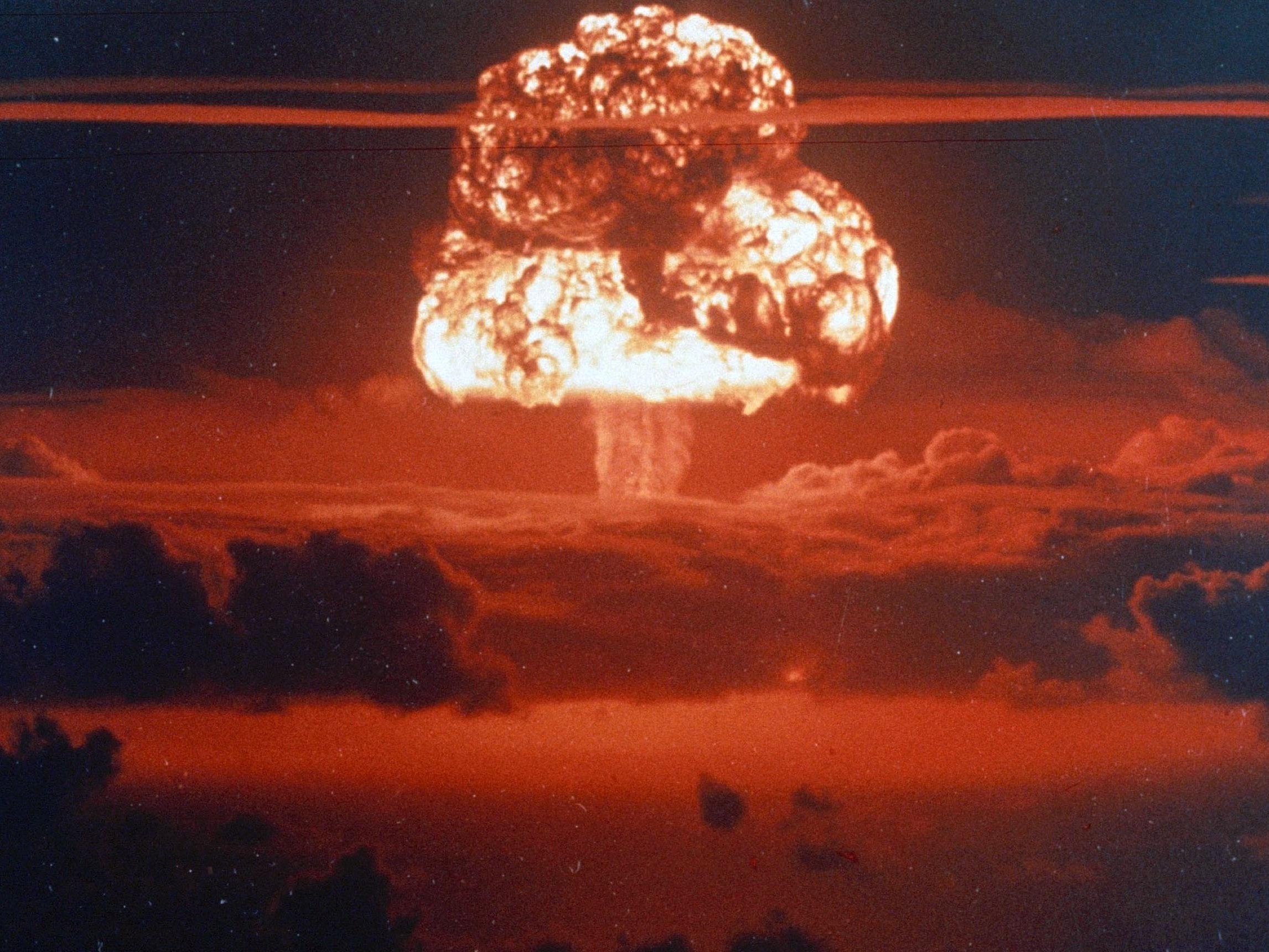US boycotts 'dangerous' UN talks on unilaterally banning nuclear weapons
US ambassador Nikki Haley says ban would mean 'bad actors' could develop weapons unchecked

Your support helps us to tell the story
From reproductive rights to climate change to Big Tech, The Independent is on the ground when the story is developing. Whether it's investigating the financials of Elon Musk's pro-Trump PAC or producing our latest documentary, 'The A Word', which shines a light on the American women fighting for reproductive rights, we know how important it is to parse out the facts from the messaging.
At such a critical moment in US history, we need reporters on the ground. Your donation allows us to keep sending journalists to speak to both sides of the story.
The Independent is trusted by Americans across the entire political spectrum. And unlike many other quality news outlets, we choose not to lock Americans out of our reporting and analysis with paywalls. We believe quality journalism should be available to everyone, paid for by those who can afford it.
Your support makes all the difference.The US has joined Russia, China and several other nuclear states in sitting out of the latest UN talks on banning nuclear weapons.
Supporters of nuclear disarmament say it is time to push harder to eliminate the weapons than nations have done in the nearly 50 years since the Nuclear Non-Proliferation Treaty was signed.
But the nuclear powers say an outright ban would not work and they should stick with the gradual approach.
The treaty, signed in 1968, recognised five nuclear states – the US, the UK, the USSR (now Russia), China and France – and agreed to promote the peaceful use of nuclear energy and the gradual decommissioning of atomic weapons.
But India and Pakistan are also believed to have nuclear weapons and refused to sign it. Israel, another a non-signatory, remains deliberately opaque about its nuclear status and has never carried out a public test, but is believed to have at least some weapons of mass destruction.
North Korea withdrew from the treaty in 2003 and has been carrying out nuclear tests with increasing frequency over the past few years.
More than 100 countries voted for a UN General Assembly resolution last year to start discussions, with nations including Austria, Brazil and Ireland leading the effort.
With international tensions rising while public awareness of the nuclear threat has waned, “the need for progress on nuclear disarmament has rarely been as urgent as it is today”, UN under-secretary general for disarmament Kim Won-soo said as the talks opened.
US ambassador Nikki Haley said that “as a mother, as a daughter” there was “nothing I want more” than a world without nuclear weapons but they had “to be realistic”.
She joined colleagues from the UK, France and around 20 other nations, including non-nuclear states, in gathering outside the UN General Assembly Hall in New York to show opposition to the talks.
Ms Haley, the former governor of South Carolina who was appointed by Donald Trump in January, said the move would mean disarming nations that were “trying to keep peace and safety” while “bad actors” could continue on unchecked.
She said: “North Korea would be the one cheering, and all of us and the people we represent would be the ones at risk”.
Opponents of the ban say gradual disarmament has made a difference. The US has reduced its nuclear arsenal by 85 per cent under the Non-Proliferation Treaty, Ms Haley said, and the UK has cut its nuclear forces by over 50 per cent since the height of the Cold War, according to ambassador Matthew Rycroft.
"Our countries continue to rely on nuclear deterrence for security and stability," French deputy ambassador Alexis Lamek said.
Chinese and Russian representatives did not join the boycotters’ news conference but said they would not participate in the talks.
The negotiations aim to create "a legally binding instrument to prohibit nuclear weapons, leading towards their total elimination". Backers hope a document will be produced by July.
Any treaty would bind only nations that ratified it, but despite the opposition from key nuclear players, supporters of the ban feel it could help create a new international norm of rejecting atomic arms.
Additional reporting by AP
Join our commenting forum
Join thought-provoking conversations, follow other Independent readers and see their replies
2Comments